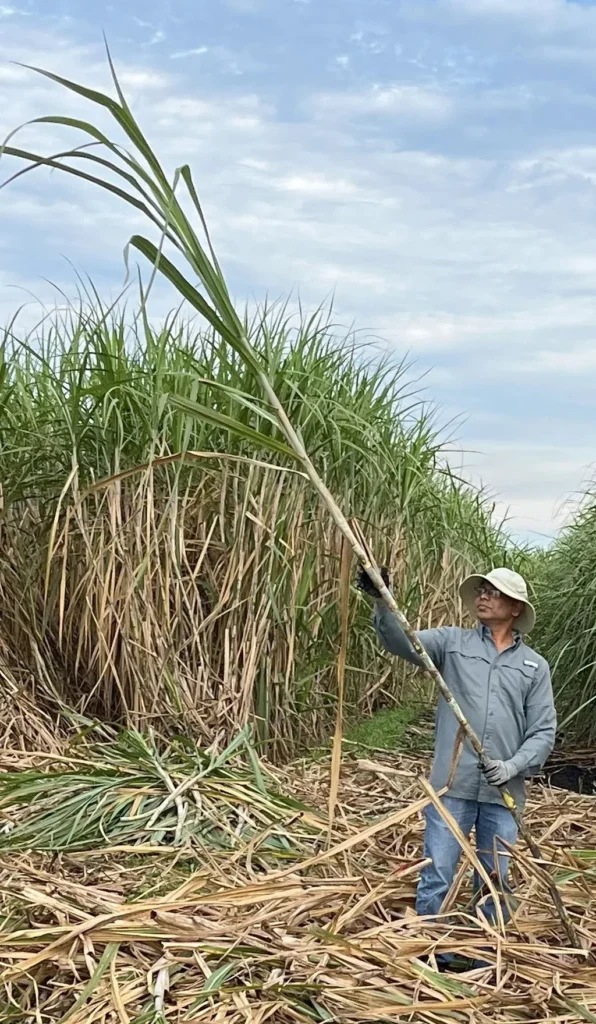In the heart of Florida, a groundbreaking study is unlocking the genetic secrets of sugarcane, promising to revolutionize the agriculture sector. Researchers, led by Shamseldeen Eltaher from the United States Department of Agriculture’s Subtropical Horticulture Research Station, have delved into the genetic diversity of sugarcane and its wild relatives, paving the way for improved crop yields and processing efficiency.
The study, published in *Frontiers in Plant Science*, focuses on the World Collection of Sugarcane and Related Grasses (WCSRG), a vital resource for future advancements in sugarcane breeding. The research team employed the Cane Presentation System to measure critical parameters such as Brix, polarity, moisture, and fiber content, which are essential for evaluating sugar extraction potential and processing efficiency.
“Modern sugarcane cultivars originate from a limited genetic pool,” explains Eltaher. “This restricts yield improvements and stress resilience. By conserving and utilizing genetic diversity from the WCSRG, we can drive future advancements in sugarcane breeding.”
The study revealed significant variations in cane quality traits among different species. Hybrids and *Saccharum robustum* outperformed in key characteristics, indicating a broad genetic base for breeding programs. Trait correlation analysis suggested independent genetic control, forming a basis for future research.
Genome-wide association studies identified 40 significant SNPs (Single Nucleotide Polymorphisms) across chromosomes 2 to 8. Notably, markers on chromosomes 4, 6, and 7 were consistently associated with Brix, while markers on chromosomes 2 and 5 were linked to fiber. Additionally, a marker on chromosome 6D was associated with both Brix and polarity.
These findings have significant commercial implications for the agriculture sector. By identifying stable SNP markers linked to key characteristics, breeders can enhance multiple traits through marker-assisted selection. This approach can lead to more efficient sugar extraction, improved processing efficiency, and ultimately, higher yields.
“Our study emphasizes the application of stable SNP markers for enhancing key traits in sugarcane,” says Eltaher. “This is a crucial step towards improving the genetic base of sugarcane cultivars and driving advancements in the agriculture sector.”
The research also highlights the need for further validation through fine mapping, gene expression analysis, and multi-location testing. Future studies should enhance marker density, expand populations, and adopt new genomic approaches for effective crop improvement.
As the global demand for sugar continues to rise, this research offers a beacon of hope for the agriculture sector. By unlocking the genetic potential of sugarcane, we can pave the way for more sustainable and productive farming practices, ensuring a sweeter future for all.

